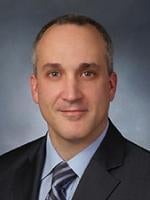On April 2, 2020, the Federal Communications Commission (FCC) launched the $200 million Coronavirus (COVID-19) Telehealth Program contemplated in the Coronavirus Aid, Relief, and Economic Security (CARES) Act. The Telehealth Program is distinguishable from the broader Connected Care Pilot Program, which will make an additional $100 million in federal universal service funds available for telehealth over the next three years.
Telehealth Program
Notwithstanding telehealth’s advantages, most low-income Americans are unable to utilize telehealth services due to their lack of consistent, broadband internet connection. Furthermore, some providers are limited in their ability to treat patients via telehealth due to the substantial financial and IT investment in developing connected care programs (e.g., purchase of remote patient monitoring devices, telehealth software platforms). The purpose of the Telehealth Program is to support healthcare providers in urban and rural areas, that are responding to the ongoing coronavirus pandemic by maximizing their provision of connected care services and devices. The Telehealth Program will help eligible healthcare providers purchase telecommunications services, information services and devices necessary to provide critical connected care services.
For purposes of the Telehealth Program and Connected Care Pilot Program, “connected care services” are defined as a subset of telehealth that uses broadband internet access service-enabled technologies to deliver care to patients at their mobile location or residence. Only internet-connected devices are covered, not unconnected devices that require the patient to communicate the results to their provider.
Funding will be awarded on a rolling basis until funds are exhausted or the coronavirus pandemic ends. To maximize the $200 million, the FCC anticipates limiting each applicant to $1 million in funding. Further, the FCC has indicated an interest in prioritizing funding to areas especially hard-hit by the coronavirus.
Eligible Healthcare Providers
Following the CARES Act and the Telecommunications Act of 1996, the Telehealth Program is limited to non-profit and public eligible healthcare providers that fall into the following categories:
-
Post-secondary educational institutions offering healthcare instruction, teaching hospitals and medical schools
-
Community health centers or health centers providing healthcare to migrants
-
Local health departments or agencies
-
Community mental health centers
-
Not-for-profit hospitals
-
Rural health clinics
-
Skilled nursing facilities
-
A consortia of healthcare providers consisting of one or more entities falling into the first seven categories.
The FCC believes that limiting the eligibility of the Telehealth Program to public and non-profit healthcare providers will ensure that funds are provided to organizations with the most need by equipping them with the necessary tools to respond to the coronavirus pandemic while protecting the intentions of the Telehealth Program.
Application Process
The FCC has streamlined the Telehealth Program application process. As of April 9, 2020, the Office of Management and Budget (OMB) approved the Telehealth Program and the Wireline Competition Bureau (the Bureau) will begin to accept applications beginning on Monday, April 13, 2020, at 12 pm (EDT). The Bureau, in conjunction with the FCC’s Connect2Health Taskforce, will review applications, select participants and make funding awards. Healthcare providers that do not already have an eligibility determination can obtain one by filing an FCC Form 460 with the Universal Service Administrative Company (USAC). Healthcare providers can submit applications for the coronavirus Telehealth Program while their Form 460 is pending. Applications for the Telehealth Program may be filed on a dedicated application portal available on the Telehealth Program page.
Importantly, all Telehealth Program applications must be filed electronically through the FCC’s electronic filing system, referencing WC Docket No. 20-89, and a courtesy copy of the application must be sent via email. The filings must be addressed to the Commission’s Secretary, Office of the Secretary of the FCC. The application must accompany additional information listed in the Order to enable the Bureau to make selections and funding determinations. Additionally, applicants must confirm compliance with privacy, federal, state, and reimbursement laws and regulations, amongst other rules.
Connected Care Pilot Program
The Connected Care Pilot Program (Pilot Program) is a three-year program that will make up to $100 million available to assist healthcare providers in offering connected care services. The Pilot Program will provide funding to cover 85% of the eligible costs of broadband connectivity, network equipment and information services necessary to provide connected care services, particularly to low-income and veteran populations. Similar to the Telehealth Program eligible provider criteria, non-profit and public healthcare providers in urban and rural areas are eligible for the Pilot Program. Related to the Pilot Program, the FCC defines “telehealth” as the broad range of healthcare-related applications that depend upon broadband connectivity, including telemedicine; exchange of electronic health records; data collected through Health Information Exchanges and other entities; and the use of real-time and delayed video conferencing for a wide range of telemedicine, consultation, training and other healthcare purposes.
The FCC prefers providers that have experience in providing telehealth or connected care services to patients. Otherwise, the FCC will consider less-experienced providers partnering with other telehealth-experienced healthcare providers, government agencies or designated telehealth resource centers that will work with the provider to implement its proposed pilot project. In selecting applicants, the FCC will prioritize projects that would primarily benefit low-income or veteran patients since they are less likely to have access to telehealth services. The FCC has provided income-based guidelines to help pilot projects identify eligible low-income patients, such as Medicaid eligibility.
The services that the FCC will fund include patient broadband internet access services, healthcare provider broadband data connections, other connected care information services and specific network equipment. However, the Pilot Program will not fund end-user devices or medical equipment. Eligible healthcare providers must submit an application to the FCC describing, among other things, its proposed pilot project and how the pilot project will use connected care services to serve the healthcare needs of participating patients.
The Pilot Program has not been approved by the OMB, as of April 9, 2020, and will not become effective until approved by the OMB. Notably, all Pilot Program applications must be filed electronically through the FCC’s electronic filing system, referencing WC Docket No. 18-213, and a courtesy copy of the application must be sent via email. The filings must be addressed to the Commission’s Secretary, Office of the Secretary of the FCC. The application must accompany additional information listed in the order to enable the FCC to make selections and funding determinations. Similar to the Telehealth Program, applicants will need to certify compliance with various laws and regulations.
Upon adoption of the order, Chairman Ajit Pai stated, “Our nation’s healthcare providers need us more than ever, and we at the FCC are answering the call. With the adoption of the $200 million COVID-19 Telehealth Program, the FCC can now take immediate steps to provide funding so that more patients can be treated at home, freeing up valuable hospital beds for those who most need them and reducing the risk of exposure to the virus.”






 />i
/>i

